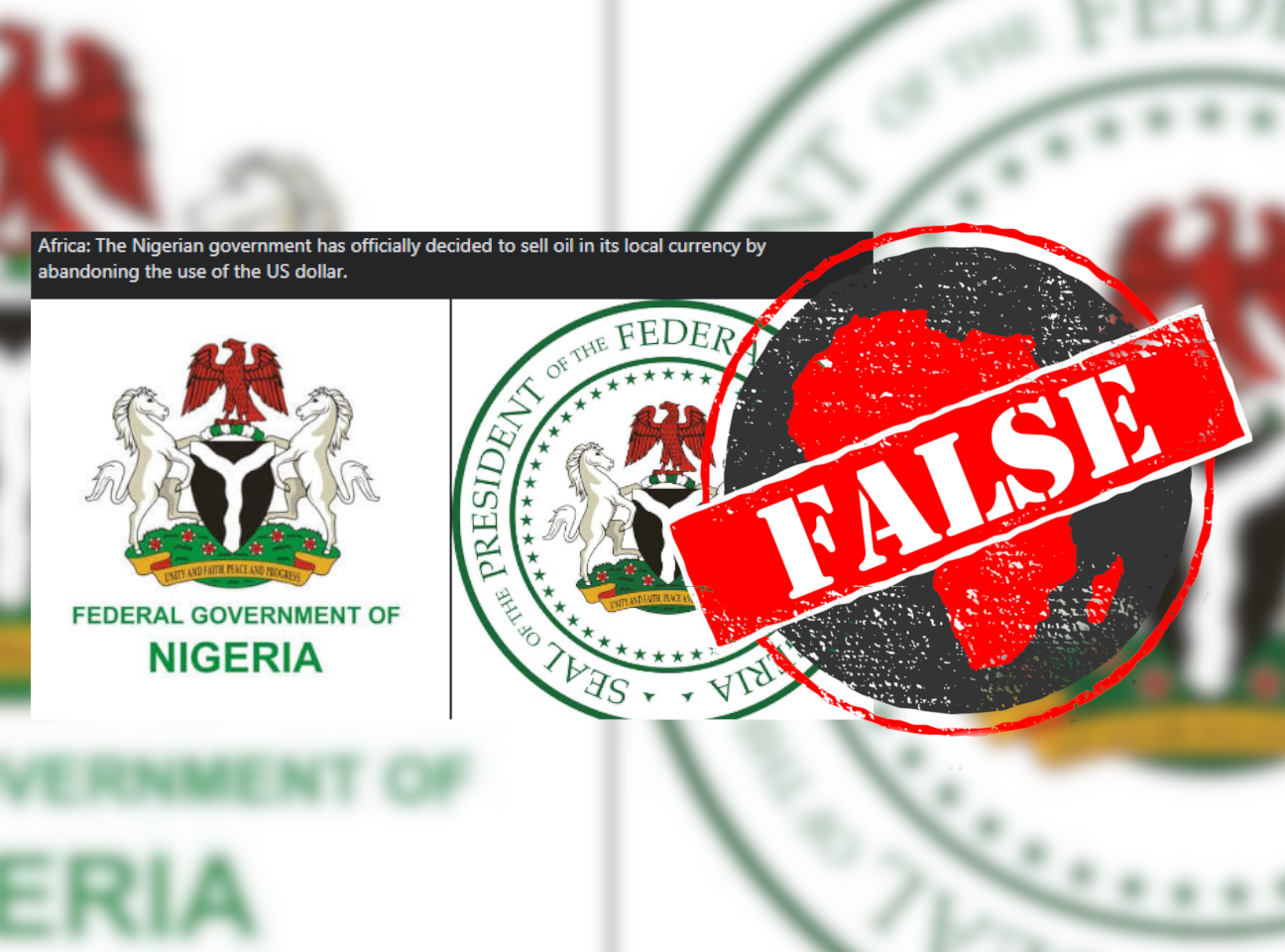IN SHORT: The Nigerian government has taken steps to stabilise the naira, but selling its crude oil in the local currency is not one of them.
Nigeria has recently seen its currency hit record lows as chronic foreign exchange shortages take their toll on the economy. This is despite the fact that the country’s crude oil continues to be a major foreign exchange earner.
In February 2024, the naira fell to historic lows, trading at N1,851 to the US dollar at one point in the month. The resulting debate has led to several posts on Facebook claiming that the country has now made a decision to sell its oil in local currency.
Some examples of the claim can be seen here, here, here, here and here.
One Facebook user described the decision as a “significant shift” in the country’s economic policy.
Has the Nigerian government taken such a decision? We checked.

No such declaration by the Nigerian government
Africa Check reached out to Olusegun Ajibola, a professor of monetary economics at the Caleb University in Lagos. He said a major advantage of selling crude oil in naira is that it can help stabilise the currency, but only if the “currency of receipt is also the currency of payment”.
If the country earns its revenues in naira, it must be able to make international purchases in the same currency.
He said: “It will be difficult for us to transact businesses by just realising our revenue in naira, unless we are able to stabilise the value of our local currency so that the value will not depreciate.”
Ajibola said he was not aware of any decision by the government to sell crude oil in naira, but there had been some moves in Africa to allow Nigerians to buy and sell in naira with other African countries.
The Pan-African Payment and Settlement System works with African central banks to provide a payment service to commercial banks, payment service providers and fintechs across the region. Thirteen central banks are members.
It allows Nigerians to pay for goods and services in other African countries using the naira. Ajibola said the move was aimed at deepening African trade relations.
The Nigerian government has taken steps to stabilise the naira, but selling oil in naira is not one of them.
The move has also not been reported in any credible local or international news reports or official statements.
Export data from the Central Bank of Nigeria shows that the country was selling oil in dollars in early 2024.
Republish our content for free
For publishers: what to do if your post is rated false
A fact-checker has rated your Facebook or Instagram post as “false”, “altered”, “partly false” or “missing context”. This could have serious consequences. What do you do?
Click on our guide for the steps you should follow.
Publishers guideAfrica Check teams up with Facebook
Africa Check is a partner in Meta's third-party fact-checking programme to help stop the spread of false information on social media.
The content we rate as “false” will be downgraded on Facebook and Instagram. This means fewer people will see it.
You can also help identify false information on Facebook. This guide explains how.


Add new comment